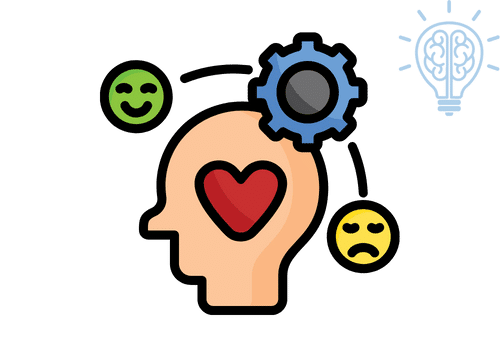What Is Self-Regulation?
Self-regulation is the ability to manage emotions, thoughts, and behaviors in response to different situations. It helps individuals control impulses, adapt to challenges, and maintain focus on long-term goals. Strong self-regulation enables people to stay calm under pressure, resist distractions, and make thoughtful decisions.
Self-regulation plays a crucial role in academic success, workplace performance, and personal relationships. Without it, individuals may struggle with impulsivity, emotional outbursts, or difficulty completing tasks.
Why Is Self-Regulation Important?
It is essential for managing daily responsibilities and achieving goals. It supports:
🧘 Emotional Balance
Helps manage frustration, anxiety, and stress without overreacting.
🛑 Impulse Control
Reduces impulsive decisions and helps individuals think before they act.
⏳ Delayed Gratification
Allows for long-term goal setting by resisting immediate temptations.
📚 Focus and Attention
Supports sustained concentration and reduces distractions.
🗣️ Stronger Relationships
Encourages effective communication and emotional awareness in social interactions.
Types of Self-Regulation
There are three key types that influence different areas of life:
💭 Cognitive
Managing attention, memory, and thinking patterns to stay focused on tasks and problem-solving.
🔥 Emotional
Controlling emotional responses, such as frustration or excitement, to handle situations appropriately.
🛠️ Behavioral
Adjusting actions and habits to align with goals, such as resisting distractions or sticking to a schedule.
How Self-Regulation Relates to Executive Function
Self-regulation is a core component of executive function, influencing:
- Inhibitory Control: Helps resist distractions and make intentional choices.
- Emotional Regulation: Supports handling stress, frustration, and setbacks effectively.
- Task Initiation: Enables individuals to start tasks without procrastination.
- Working Memory: Allows for holding and organizing information without losing focus.
- Self-Monitoring: Encourages reflection on progress and adjusting strategies as needed.
Signs of Weak Self-Regulation
If you struggle with it, you may notice:
- ⚡ Acting impulsively without thinking through consequences.
- 🔥 Difficulty managing frustration, stress, or emotional reactions.
- 📉 Procrastination and trouble following through on tasks.
- ⏳ Struggles with time management and prioritization.
- 🚀 Inconsistent motivation, with bursts of energy followed by burnout.
Strategies to Strengthen Self-Regulation
It can be developed through intentional strategies and daily practice.
✅ 1. Practice Mindful Awareness
Use mindfulness exercises to become more aware of emotions, thoughts, and impulses before reacting.
✅ 2. Use “If-Then” Planning
Develop pre-planned responses for difficult situations (e.g., “If I feel overwhelmed, then I will take a five-minute break”).
✅ 3. Break Tasks into Small Steps
Overwhelm can lead to inaction. Breaking tasks into smaller steps makes them feel more manageable.
✅ 4. Set Clear Goals and Rewards
Use short-term rewards to reinforce good habits and increase motivation.
✅ 5. Develop Emotional Regulation Techniques
Try deep breathing, progressive muscle relaxation, or journaling to process emotions effectively.
✅ 6. Limit Environmental Distractions
Remove triggers that make it harder to stay focused, such as turning off notifications or using a structured workspace.
✅ 7. Create Structured Routines
Daily routines help build consistency and reduce the need for constant decision-making.
✅ 8. Use Time-Blocking Methods
Set dedicated time periods for work, breaks, and relaxation to create better balance.
How Executive Function Coaching Can Help with Self-Regulation
For individuals struggling, executive function coaching provides personalized strategies to improve emotional control, focus, and behavior management. Coaching can assist with:
- Strengthening impulse control and emotional regulation.
- Developing self-monitoring habits to track progress.
- Building structured routines for greater consistency.
- Creating personalized strategies for managing stress and distractions.
By improving self-regulation skills, individuals can enhance productivity, manage emotions more effectively, and build stronger executive function abilities.
📞 Want to improve your self-regulation skills? Contact us for executive function coaching today!




